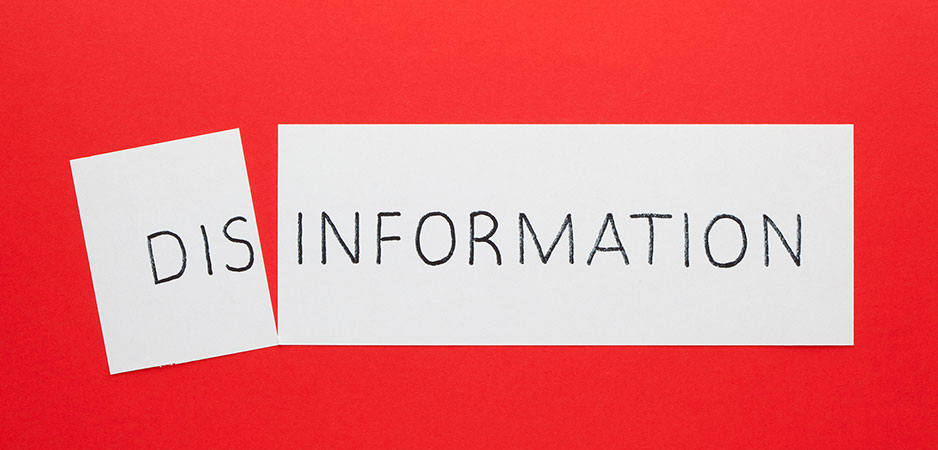According to the GLOBSEC Trends 2020 report, across Central and Eastern Europe, 34% believe that COVID-19 is a hoax designed to manipulate populations. With hundreds of deaths around the world occurring as a result of disinformation related to the coronavirus, the pandemic has demonstrated the critical importance of limiting the impact of disinformation on our societies.
COVID-19 Conspiracy Theories Have Real-World Consequences
Only an approach that encompasses all of society can truly improve resilience to disinformation. It needs to consist of five elements, none of which can be neglected if we want to create a healthier information environment. These are: legal instruments on European or national level, disinformation demonetization, responsible digital citizenship, quality journalism and strategic communication. All these elements require cooperation from public officials and state institutions, the research community, civil society actors as well as citizens.
Basic Rules
EU member states need to actively contribute to the swift implementation of the proposed Digital Services Act and the European Democracy Action Plan that will establish much-needed boundaries for digital space. Non-members can work to adopt legislation modeled on the European code and collaborate with the EU to set basic rules in line with the principle that what is illegal offline is illegal online. For example, if Holocaust denial is illegal in countries such as Austria or Slovakia, such content should not be acceptable on digital platforms that either have community standards that are not in line with legislation in which these platforms operate or because of a failure to uphold those standards.
Furthermore, regulation needs to foster transparency and accountability in areas such as content ranking and moderation. These instruments, if implemented properly with all key stakeholders such as digital platforms, the research community, civil society and technology specialists on board, could significantly limit the reach of harmful content.
Defunding Disinformation
According to the Global Disinformation Index, the estimated yearly profit generated by disinformation websites come to $235 million, propelling disinformation actors to incredible influence. Legal instruments can help disrupt the economy of disinformation by ensuring that ad agencies will not be able to place ads on sites spreading fake news, hate speech and conspiracy theories. Google already announced that it will defund ads on webpages promoting COVID-19 conspiracy theories. However, implementation of this policy is questionable due to a lack of transparency measures and standardized monitoring. Similarly, social media platforms should not be allowed to place ads next to hate speech and disinformation.
In this effort, civil society organizations have been paving the way, with projects such as Slovakia’s konspiratori.sk, Czech nelez.cz or, in the US, the Anti-Defamation League’s Stop Hate for Profit. They are based on raising awareness of disinformation outlets while inviting companies to opt out of placing ads on such channels. Freedom of speech does not mean the right to profit from disinformation. Demonetizing disinformation would lead to an immediate improvement in the quality of the information environment as it would limit the reach of disinformation by removing economic incentives that drive it.
Responsible Digital Citizenship
Many citizens have been caught unprepared for the radical changes to information consumption and production in the wake of the information revolution. Without the necessary education and skills, users often share content without checking their sources, unaware of the fact that they are unwittingly helping to spread hate and false information. We all need to accept the fact that responsible citizenship extends to online sphere as well.
It is crucial to include the concept of responsible digital citizenship for all age groups in teaching curricula starting from elementary schools. Similar training could be implemented in employment onboarding schemes. It should cover all aspects of digital footprints such as personal data protection, norms of online conduct and the consequences of sharing malign information among our communities.
Quality Journalism
Another factor in the disinformation equation is that quality journalism has suffered globally in the wake of the 2008 financial crisis and with the rise of social media. Independent journalism needs to be systematically supported, possibly by taxing tech giants and using a portion of that money to fund media resources. As one of the cornerstones of functioning democracies, the demise of local outlets is highly worrying. Support for local news and the protection of investigative journalists from threats and attacks would work as a strong antidote to the increasing dissemination of toxic content.
Strategic Communication
Often, state administrations and European institutions suffer from an inability to communicate their messages in an accessible and engaging way. It is of the utmost importance that all state institutions, from regional to federal, proactively communicate their activities and benefits to citizens because in the absence of such communication, an information void is created that can be easily abused by malign actors.
Strategic communication is the go-to tool when striving to build trust with constituencies. Such trust will also likely be the determining factor in the relative success of overcoming the pandemic, as people’s willingness to get vaccinated against COVID-19 correlates with trust in public institutions.
Regulation and demonetizing disinformation are reactive steps that address a social wound that has been left untreated for too long. But proactive measures of fostering responsible digital citizenship, supporting quality journalism and conducting efficient strategic messaging will help increase democratic’ resilience to influence operations. Even partial progress in each of these five domains would lead to massive improvements in the quality of our shared information environment.
The views expressed in this article are the author’s own and do not necessarily reflect Fair Observer’s editorial policy.
Support Fair Observer
We rely on your support for our independence, diversity and quality.
For more than 10 years, Fair Observer has been free, fair and independent. No billionaire owns us, no advertisers control us. We are a reader-supported nonprofit. Unlike many other publications, we keep our content free for readers regardless of where they live or whether they can afford to pay. We have no paywalls and no ads.
In the post-truth era of fake news, echo chambers and filter bubbles, we publish a plurality of perspectives from around the world. Anyone can publish with us, but everyone goes through a rigorous editorial process. So, you get fact-checked, well-reasoned content instead of noise.
We publish 2,500+ voices from 90+ countries. We also conduct education and training programs
on subjects ranging from digital media and journalism to writing and critical thinking. This
doesn’t come cheap. Servers, editors, trainers and web developers cost
money.
Please consider supporting us on a regular basis as a recurring donor or a
sustaining member.
Will you support FO’s journalism?
We rely on your support for our independence, diversity and quality.






